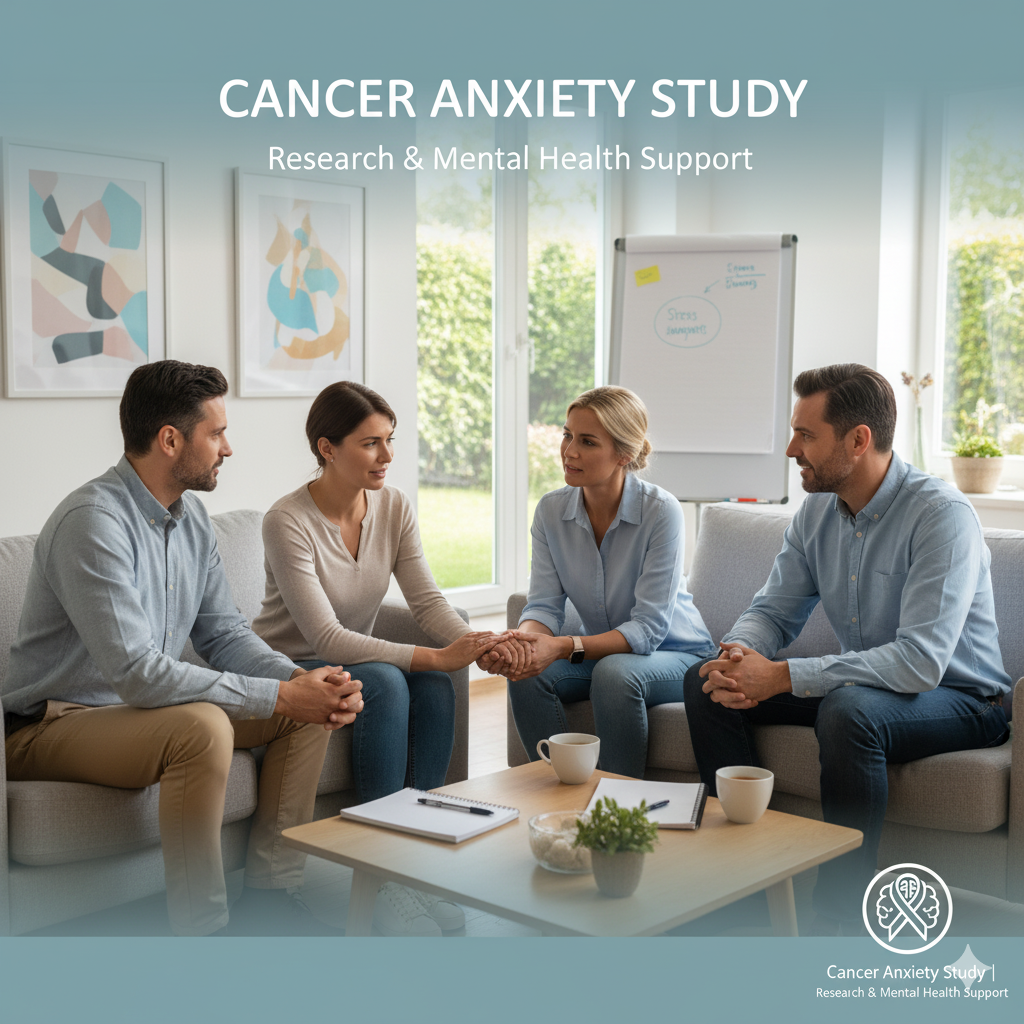Home

Home | Cancer Anxiety Study | Research & Mental Health Support
A cancer diagnosis is more than a physical challenge—it is an emotional journey that profoundly impacts patients, families, and communities. Fear, uncertainty, and stress often accompany treatment, creating a unique psychological burden known as cancer-related anxiety. The Cancer Anxiety Study | Research & Mental Health Support exists to explore this complex experience, bringing together research, clinical expertise, and supportive care to improve the lives of those affected.
This initiative serves as both a research hub and a support platform, dedicated to understanding how anxiety influences cancer care, recovery, and quality of life, while offering tools to help individuals manage emotional challenges.
Understanding Cancer-Related Anxiety
Cancer-related anxiety is not a single symptom—it is a spectrum of emotional responses that include fear of recurrence, stress about treatments, uncertainty about outcomes, and concern for loved ones. Even long after treatment, many survivors continue to experience heightened worry and stress.
Key aspects of cancer-related anxiety include:
-
Pre-treatment stress: Worry about diagnostic procedures, treatment side effects, and lifestyle changes.
-
Treatment-related anxiety: Emotional strain caused by chemotherapy, radiation, or surgery.
-
Fear of recurrence: Persistent worry that cancer may return, even after successful treatment.
-
Caregiver anxiety: Emotional burden on families and loved ones who provide care and support.
By studying these experiences, researchers gain insights into how anxiety interacts with cancer outcomes, ultimately shaping better treatment approaches.
Research for Better Understanding
The Cancer Anxiety Study places research at the forefront. It combines clinical psychology, psychiatry, oncology, and neuroscience to build a holistic understanding of how anxiety manifests and affects patients.
Areas of focus include:
-
Neurobiological responses: How the brain processes fear and stress during cancer treatment.
-
Behavioral outcomes: The ways anxiety influences treatment adherence, lifestyle habits, and recovery.
-
Psychosocial impact: How relationships, employment, and community interactions are shaped by emotional stress.
-
Intervention effectiveness: Evaluating the success of therapies such as cognitive-behavioral therapy (CBT), mindfulness, and pharmacological treatments.
Through clinical trials, surveys, and long-term follow-up studies, the project generates evidence that informs not only healthcare professionals but also policymakers and support organizations.
Mental Health Support for Patients and Families
Research alone is not enough—emotional support is essential. The Cancer Anxiety Study also emphasizes mental health care and practical support, ensuring that findings translate into meaningful help for individuals.
Support services include:
-
Counseling & Therapy: Access to professional psychologists specializing in oncology-related anxiety.
-
Support Groups: Safe spaces where patients and caregivers share experiences, learn coping strategies, and find comfort.
-
Digital Resources: Online workshops, guided meditation, and educational materials to reduce anxiety at home.
-
Family & Caregiver Support: Programs designed to help families cope with stress while providing the best care for loved ones.
By combining research with direct support, the initiative ensures that science translates into real-life relief and resilience.
The Role of Education and Awareness
Anxiety in cancer care is often overlooked, overshadowed by the urgency of treating the disease itself. Education and awareness are critical to changing this.
The Cancer Anxiety Study actively promotes knowledge through:
-
Workshops for healthcare providers: Training doctors, nurses, and counselors to recognize and address anxiety symptoms.
-
Community outreach: Hosting seminars and webinars that raise awareness about the emotional side of cancer.
-
Patient education: Offering clear, accessible information to empower patients in managing stress and emotions.
By breaking the stigma around mental health in cancer care, these programs encourage open conversations and proactive treatment.
Innovative Approaches to Anxiety Management
The initiative explores innovative approaches to anxiety care, blending traditional therapies with modern techniques. Some promising interventions include:
-
Mindfulness-Based Stress Reduction (MBSR): Using meditation and breathing practices to calm the mind.
-
Digital Therapy Tools: Mobile apps that provide real-time anxiety management support.
-
Art & Music Therapy: Creative outlets that help patients process emotions.
-
Exercise & Nutrition Programs: Promoting physical activity and healthy diets to improve mental resilience.
-
Integrative Medicine: Approaches that combine conventional oncology with holistic therapies such as acupuncture or yoga.
These tools not only address anxiety but also improve overall well-being and recovery outcomes.
Building a Global Research Community
Cancer anxiety is not limited to one country or culture—it is a universal experience. The Cancer Anxiety Study collaborates with international research centers, universities, and nonprofit organizations to create a global knowledge network.
By sharing data, case studies, and intervention models, researchers can identify cultural differences and common solutions, ensuring that patients worldwide benefit from collective wisdom.
Challenges and Opportunities
While progress is being made, challenges remain. Stigma around mental health, limited access to psychological care, and lack of awareness often prevent patients from receiving the help they need. Yet with these challenges come opportunities:
-
Telehealth services can expand access to care, especially for patients in remote areas.
-
Personalized medicine may allow treatments to be tailored to individual emotional and physical needs.
-
Community engagement can foster grassroots support networks that reduce isolation and loneliness.
The Cancer Anxiety Study is committed to addressing these challenges with innovative, inclusive, and compassionate approaches.
Why the Cancer Anxiety Study Matters
Cancer is not only fought in hospitals—it is also fought in the hearts and minds of patients and families. The Cancer Anxiety Study underscores that mental health is as important as physical health in the fight against cancer. By integrating research, education, and direct support, it creates a model of care that sees patients as whole human beings, not just medical cases.
Closing Thought
Cancer Anxiety Study | Research & Mental Health Support is more than a research project—it is a lifeline. It provides hope, knowledge, and tools to those who face one of life’s most difficult journeys. By uniting science and compassion, it helps transform fear into resilience, anxiety into understanding, and isolation into community.
For patients, families, and healthcare providers alike, this initiative stands as a reminder that healing goes beyond medicine—it begins with empathy, knowledge, and support.